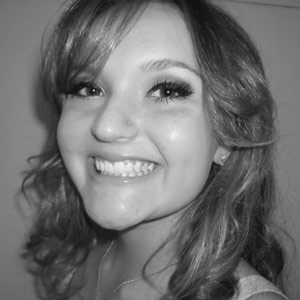
It might seem really strange to you.
Ableist right-wingers
seem to categorise all feminists, liberals and gay rights activists under one
banner: ‘libtards’.
But, no group is a monolith and people who value freedom
and human rights unsurprisingly have plenty of disagreements amongst themselves.
While I support marriage equality and the acceptance of queer and trans* people, I find that I disagree with the mainstream gay rights movement because it’s simply too oppressive.
Erasure of other identities
The gay rights movement has been responsible for a lot of erasure. The name itself is problematic, because the entire community of individuals with marginalized sexualities can’t be represented by the word ‘gay’.
There are people who have marginalized sexualities who are
attracted to people of the same gender but are not gay.
There are people who
identify as bisexual, pansexual, sexually fluid, or queer, to name but a few
orientations.
These sexual orientations are often dismissed as being a ‘phase’.
The queer community often refers to this as monosexism – the
oppressive myth that people can only truly be attracted to people of one
gender.
Additionally, asexual people –
people who do not experience sexual attraction – are often erased, marginalized
or underrepresented.
The hypersexualized nature of Pride marches is pretty
awesome until you remember that there are people out there who experience do
not experience sexuality in that way.
One of the worst transgressions of the mainstream gay rights
movement, however, is the erasure
and blatant oppression of trans* and intersex folk.
Queers who are
cisgender – cisgender meaning that one identifies as the gender assigned to
them at birth, based on the appearance of their genitals – are often
transantagonistic.
Assimilation
I’ve been confused, and often, amused by the queer community
of South Africa as of late.
Although we won the right to marry people of the same gender in 2006, the
sudden support for ‘marriage equality’ flourished in 2013.
People had those red
equal signs as their avatars for weeks. Memes of rainbows and unicorns were
plastered all over Facebook. Radio stations played Same Love
to excess. I have never seen people unite for the queer
community as what they did in 2013.
And there’s a big problem with that. Corrective rape is
extremely common.
People who are suspected of being anything but heterosexual are persecuted all
over Africa.
But the thing that united South African queers and their allies was the
movement toward marriage equality – not people being killed, but people wanting
to be just like
heterosexual people. Of
course, marriage equality is important, but prioritising one’s right to marry
over one’s right to life seems completely absurd.
We spoke more about Americans
gaining rights than about Africans having their basic dignity undermined.
Why? Probably because the idea of marriage can be fluffed up to seem romantic
and adorable. Rape and murder? Not so much.
It’s understandable, but it’s
harmful because the lived realities of queer South Africans are being obscured
by rainbows and body glitter.
There are a number of queer critiques of gay marriage, most of which revolve
around the idea that it’s wrong for one kind of relationship – marriage – to
have privilege over other kinds of relationships.
Other critiques remind us
that marriage is a tool of patriarchy. As explained on Against
Equality, “Gay marriage apes hetero privilege and allows everyone to forget
that marriage ought not to be the guarantor of rights like health care.
In their constant invoking of the “right” to gay marriage, mainstream gays and
lesbians express a confused tangle of wishes and desires.
They claim to
contest the Right’s conservative ideology yet insist that they are more moral
and hence more deserving than sluts like us.”
Rainbows over revolution
Pride marches in our country have recently been under
scrutiny for their exclusive nature. It has been pointed
out that Cape Town Pride caters specifically for white, middle-class, mainly
male participants.
Working-class people and people of colour are often excluded
or underrepresented.
When asked whether Cape Town Pride would send a strong message about hate crimes experienced by non-heterosexual people, Matthew van As – director of Cape Town Pride – said that Pride wasn’t an appropriate platform for such “emotionally charged” issues, as apparently Cape Town Pride “could not force the gay community to hear something that they may not be ready to hear,” despite the fact that a lot of the gay community are forced to deal with those experiences every day.
Van As’s comments are typical of the mainstream gay rights
movement – they’re more interested in being palatable than being revolutionary.
They’re more interested in celebrating in comfort than in ending oppression.
I’m not here for the mainstream gay rights movement, because
it’s not here for me. It’s not here for my trans* siblings, my asexual and
polysexual peers, people of colour, or the working class.
The reason why I identify as an intersectional feminist is because this
movement aims to end oppression of all kinds: it aims to support people
oppressed based on their race, gender, sexuality, abilities, language,
nationality, culture, religion, ethnicity, and so on.
Sorry, gay cisgender middle-class white men, but I’m not going to call myself a part of your movement if you don’t have my back.
Check out Sian's blog and follow her on Twitter.
Follow Women24 on Twitter and like us on Facebook.




 Publications
Publications
 Partners
Partners













